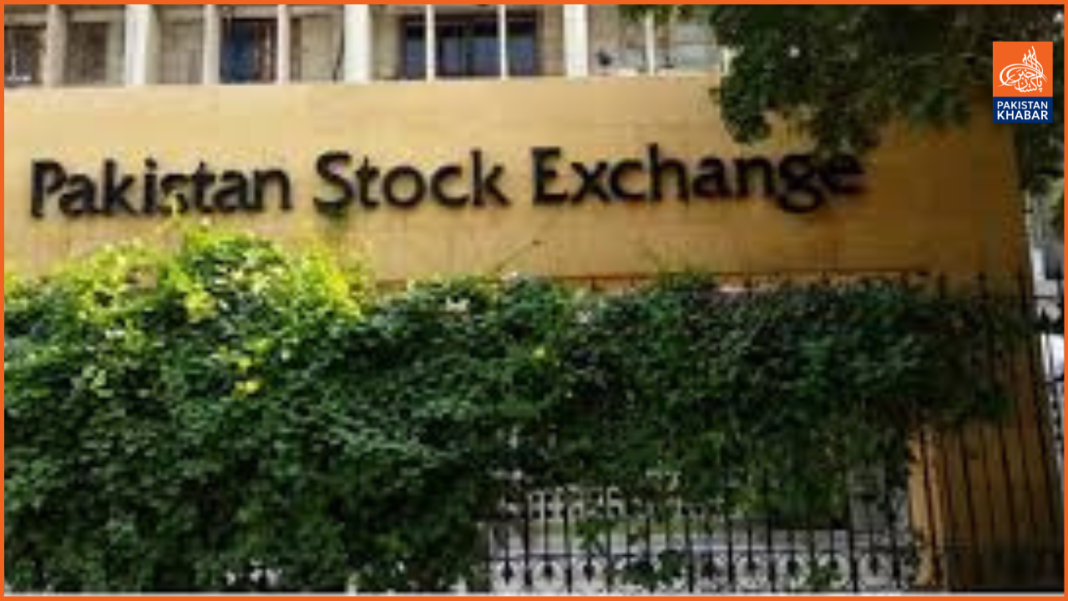Shares rose more than 1,700 points on Tuesday at the Pakistan Stock Exchange after the index fell.
The KSE-100 index rose 1734.69, or 1.51%, to 116,644.17 from 114,909.48 at 11:02am.
Director research at Chase Securities Yousuf M. Farooq stated, “The stock market has rebounded from yesterday as Asian markets recover.
Media reports that the foreign minister has contacted Marco Rubio and that Pakistan has begun tariff talks are also promising, he said.
Most participants believe Pakistan “should remain relatively insulated from the impact of tariffs, given that exports make up a small portion of the economy”.
He claimed decreased commodities costs might promote domestic demand.
Director research at AKD Securities Awais Ashraf said the market rallied “as investors seized buying opportunities, buoyed by Wall Street’s recovery and positive momentum in Asian markets”.
“In our view, yesterday’s market decline was unwarranted, especially given Pakistan’s favorable implications amid the ongoing trade war,” he said. “The newly imposed tariffs offer a comparative advantage to Pakistan’s exports, given our relatively lower tariff rates compared to peers.”
Softer commodity prices should also boost the country’s external account, he said.
According to Topline Securities CEO Mohammed Sohail, Pakistani stocks rose “in line with recovery in US and global markets”.
After China retaliated against the US with tariffs, shares fell 3,882 points yesterday.
After the benchmark index fell 6,000 points, the PSX paused trade for an hour, only to lose 2,000 points when trading reopened.
Analysts blamed “investors’ fears that tariff hikes could lead to global recession through weaker demand” for the drop.
Japanese rebound helps battered markets.
Asian equities rose off more than one-year lows and US stock futures rose on Tuesday, but investors remained on edge, hoping Washington would negotiate some of the hardline tariffs that have shook markets.
With Treasury Secretary Scott Bessent leading trade negotiations with Tokyo, Japan’s Nikkei rose 5.6pc, outpacing other regional markets.
“Importantly, a little ray of sunshine is starting to emerge that gives hope that the US is genuinely open to trade negotiations, (with) the most significant being Japan with Treasury Secretary Bessent,” said National Australia Bank head of market economics Tapas Strickland.
The VIX index spiked above 60 overnight for the second time since the outbreak, a “rare event” according to Strickland.
Tokyo climbed following a severe selloff, but China’s markets rose only little after sovereign wealth funds bought shares. Taiwan’s chip-export benchmark fell 5% a day after its worst drop ever.
Japanese equities led MSCI’s broadest index of Asia-Pacific shares to a 1.7pc rebound from its lowest level since February 2024 after a more than 10pc drop in the previous two days.
Thai markets fell roughly 6pc on Monday after a holiday, while Indonesian equities fell 9pc after a week off.
After its worst plunge since the 1997 Asian financial crisis on Monday, Hong Kong’s Hang Seng rose 1.6pc. The sovereign fund Central Huijin Investment and other state-backed investors bought Mainland Chinese blue chips, which rose 1%.
In the offshore market, the Chinese yuan plummeted to 7.3677 per dollar, its lowest level in two months, before recovering to 7.3393.
Moving trade stories didn’t ease markets’ concern as investors sought relief from extreme market volatility.
CNBC reported that President Donald Trump was considering a 90-day tariff truce for countries other than China. The White House refuted the claim.
Trump also threatened extra 50% tariffs on China if Beijing does not lift retaliatory taxes. Beijing said Tuesday it will never take US tariff threats as “blackmail nature”.



